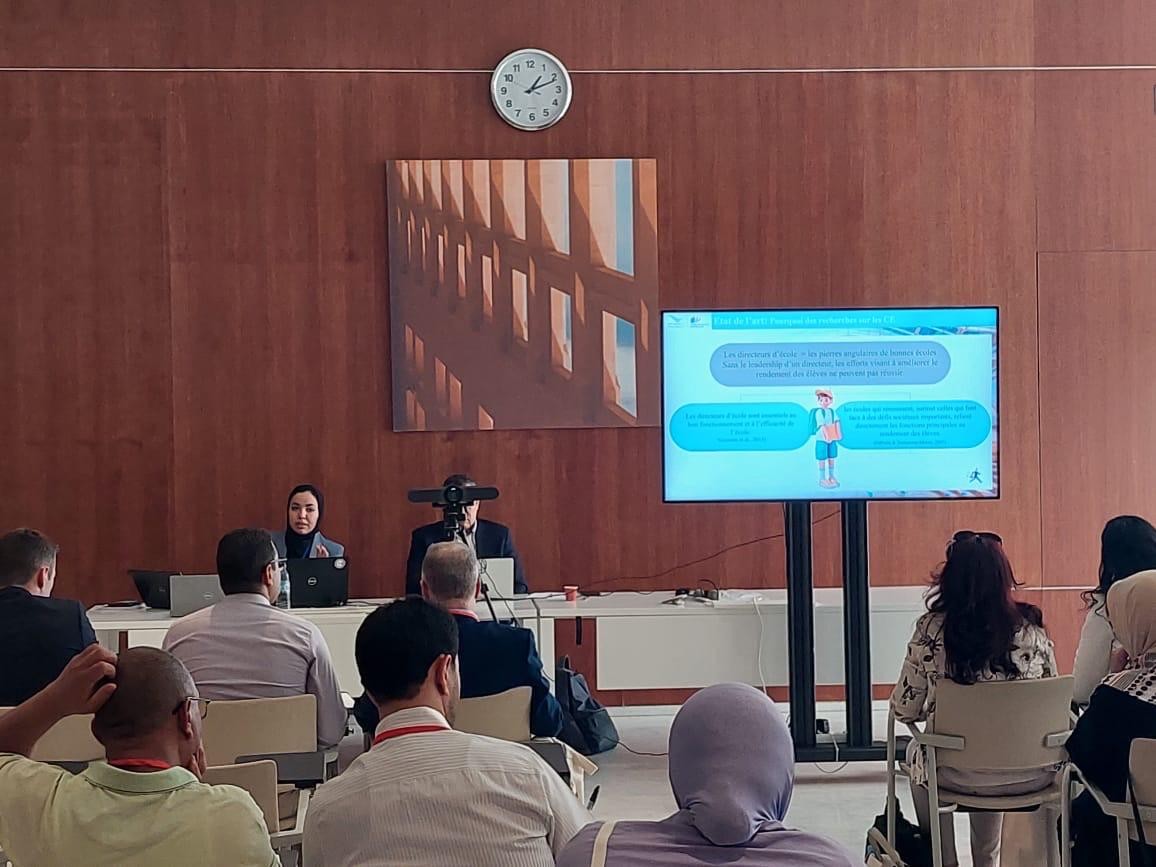Towards the design of an innovative platform for the training of educational managers

Swiss partners
-
Université de Genève: Germain Poizat (principal investigator), Insaf Al-Chikh
Partners in the MENA region
- Université Ibn Zohr Agadir, Morocco : Amsider Abderahmane
Other partners
- Université de Montréal (formerly Université Mohammed VI Polytechnique) : Judicaël Alladatin (principal investigator)
Presentation of the project
This project aims to develop guidelines for the design of an innovative platform for training Moroccan school principals, based on an analysis of their real-word practice. As part of the 2015-2030 reform, Morocco has prioritized the improvement of education quality. However, research indicates that these efforts have not led to significant outcomes, emphasizing the need for alternative approaches to engaging school principals and teachers in the process of reconfiguring the education system. Studies show that before 2015, most school principals in the post had not received training in key areas such as pedagogical leadership and planning. Furthermore, even after the introduction of a mandatory initial training program, it remains predominantly theoretical and lacks continuous professional development to enhance their skills and capacities. Additionally, these programs are not based on studies of the school principals’ work in the wild.
Hence, our aim through this project was to converge on an alternative approach to training school principals; "the activity-oriented approach". An approach that resonates with the operational realities of the principals, without being limited to the work as imagined. We utilized a three-stage methodology, starting with a literature review of different approaches to activity analysis for training design purposes, the practices of school principals in Morocco, training needs and professional requirements, as well as the challenges they encounter in their daily work. The second stage involved an ethnographic approach, during which we filmed several interactions between the school principals and various stakeholders. Finally, we conducted self-confrontation interviews and analyzed the collected data.
The key findings revealed a significant degree of fragmentation, ambiguity, and volatility in the principals’work pratice. The observations demonstrated that school principals assume multiple roles in a single day: supporting teachers pedagogically, absorbing the anger of parents, fulfilling administrative roles, developing the school's infrastructure, understanding the students, and creating coherence among all collaborators. The self-confrontation interviews showed that in a single moment, the principal's brain is simultaneously processing multiple preoccupations and concerns that are nevertheless difficult for us to observe without self-confrontation. Multiple and distinct concerns have been revealed, mainly related to student safety, teacher motivation, collaboration among different stakeholders, ensuring good communication with parents, creating a positive climate in the classroom/school.
The data collected from the literature review and the analysis of interviews with school principals provided the foundation for the development of the platform. We documented various work situations through filmed observations, which were then categorized into three main areas: administrative duties, pedagogical responsibilities, and social interactions. Each situation included authentic footage of school principals managing their tasks, as well as self-confrontation videos where they reflected on their intentions, expectations, concerns, and key lessons learned.
This platform will enable novice school principals to navigate these scenarios, engaging with the ones that resonate most with their experiences and needs. By combining theoretical and practical training with immersion in real-world situations observed by their peers, the approach aims to provide more effective and contextually relevant preparation for their role.
Future research will focus on enhancing initial and in-service training programs. This will involve increased filming of real-world situations and conducting more frequent auto-confrontation video exercises to better prepare and support professionals in fulfilling their duties, specifically in planning, organizing, managing, and evaluating their work. Further research is also needed to empirically document the effects of viewing the platform's resources on the professional development of novice principals.
More on the project
Article in International Journal of Educational Innovation and Research (2023)